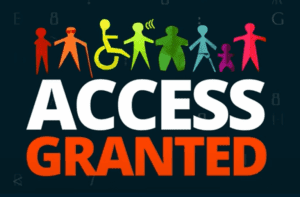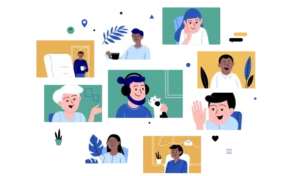Raising a child with a disability can be one of the most rewarding and most demanding journeys a parent will ever take. Disabilities can look very different from one family to the next. Some children require constant, hands-on care for complex medical or developmental needs. Others may be physically independent but still need support to navigate a world that isn’t always accessible. Whatever your child’s needs, your life as a parent will be filled with love, pride, and moments of pure joy, but also with challenges that can test your patience, resilience, and resources.
One of the most important things to remember is that children are often only as independent and confident as their parents allow them to be. Encouraging independence—teaching them skills, expecting them to try, and giving them room to grow—can make a lasting difference in their confidence and development.
If you’re a parent navigating this path, you know there’s no single “right way” to do it. What you do need is information you can trust, tools you can actually use, and a community that understands. This guide brings together practical resources, honest realities, and encouragement for parents with children with disabilities.
The Emotional Journey of Parenting a Child with a Disability
For many parents, there’s a period of grief when they first learn of their child’s disability. You might find yourself mourning the life you imagined for them or the life you pictured for yourself. It’s important to know this is normal. Love and grief can exist side-by-side.
Some days, you’ll feel joy and gratitude. Other days, exhaustion and frustration will take over. None of these feelings make you a bad parent, they make you human. Acceptance doesn’t always arrive quickly, but over time, many parents find a rhythm that allows them to celebrate their child’s unique abilities while acknowledging the challenges.
Balancing Advocacy and Privacy
Every parent handles advocacy differently. Some choose to speak openly about their child’s disability to educate others, raise awareness, and push for inclusion. Others prefer to protect their child’s privacy, sharing details only when it’s necessary to secure support or accommodations.
There’s no one-size-fits-all approach. What matters is that your choices reflect your family’s values and your child’s best interests. If you do share your story, remember that you control the narrative. You can highlight or keep private whatever feels right to you.
The Financial and Career Impact
Caring for a child with a disability often changes a parent’s professional life. Some reduce hours, turn down promotions, or leave the workforce entirely to provide full-time care. Others shift into careers with more flexibility.
The financial impact can be significant. Between therapies, medical equipment, home modifications, and transportation, expenses add up quickly. It’s worth exploring resources such as:
- Government programs: Medicaid waivers, Social Security benefits, and state-based assistance
- Grants for disabled children: Offered by nonprofits and charitable organizations
- Workplace accommodations: Flexible schedules, remote work options, and family leave
Building a Reliable Support System
One reality many parents discover is that offers of help sometimes fade over time. Even the friends and family you can usually count on may get caught up in the demands of their own lives and families. It’s important to seek out support you can rely on, such as:
- Respite care services to give you regular breaks
- Parent support groups (both local and online) where you can connect with others who “get it”
- Advocacy organizations that provide guidance on education, healthcare, and legal rights
Daily Life: What to Expect and How to Adapt
For some parents, daily life involves constant caregiving: assisting with feeding, dressing, transportation, and medical care. For others, the focus may be on advocating for accommodations at school, providing mobility or communication support, or helping a child build independence. Whatever your daily routine looks like, therapy sessions, doctor’s appointments, and school meetings can easily dominate your calendar. Finding ways to adapt can make a big difference:
- Use grocery and meal delivery to save time
- Look for accessible community events instead of long trips if travel is challenging
- Celebrate small moments of progress—these can be as meaningful as major milestones
Caring for Yourself While Caring for Your Child
Caregiver burnout is real and your health matters just as much as your child’s. Exhaustion, stress, and physical strain can build up over time. Small but consistent self-care practices help. And remember, you can’t pour from an empty cup so taking care of yourself benefits your child, too. A few ideas to help you care for yourself:
- Schedule regular breaks, even short ones, to rest or do something you enjoy
- Keep up with your own medical checkups
- Talk openly with a therapist or trusted friend about the emotional side of caregiving
Planning for the Future
Long-term planning is a crucial but often overwhelming task. These decisions can be emotional and it’s common to feel guilt or worry about judgment. Remember, planning ahead is an act of love, it ensures your child will be supported no matter what. Consider:
- Legal guardianship or power of attorney for when your child becomes an adult
- Special needs trusts to ensure financial security without affecting eligibility for benefits
- Residential care or supported living arrangements for when you’re no longer able to provide full-time care
Finding Unexpected Joy and Growth
Amid the challenges, many parents discover personal growth they never expected: greater patience, a new perspective on what matters, and a deeper appreciation for life’s small victories.
Milestones might look different in your family, but they’re just as worth celebrating—whether it’s a new skill, a moment of independence, or a shared laugh after a hard day.
Resources to Get You Started
If you’re raising a child who is blind or visually impaired, these organizations and tools can be especially helpful:
- National Federation of the Blind – Parents of Blind Children (NOPBC): A nationwide community of parents offering mentorship, events, and publications that encourage independence and high expectations for children who are blind.
- AFB FamilyConnect (via APH ConnectCenter): A comprehensive online resource with articles, webinars, and support networks for families of children with visual impairments—organized by age and stage.
- Perkins School for the Blind – WonderBaby: A parent-focused site with practical tips, family stories, and resources on early childhood development for children who are blind or have multiple disabilities.
- National Library Service for the Blind and Print Disabled (NLS): A free program from the Library of Congress providing braille and audio books by mail and digital download for children and families.
- Bookshare: An accessible online library offering free e-books and textbooks for U.S. students with qualifying print disabilities.
There Is Support Out There
Being a parent of a child with a disability can feel isolating, but you’re part of a community that understands the realities and the rewards of this journey.
If you’re looking for tools, resources, or a network that gets it, we are here to help. Follow along on our blog for more helpful tips, advice, resources, and stories that educate, inspire, and empower.






